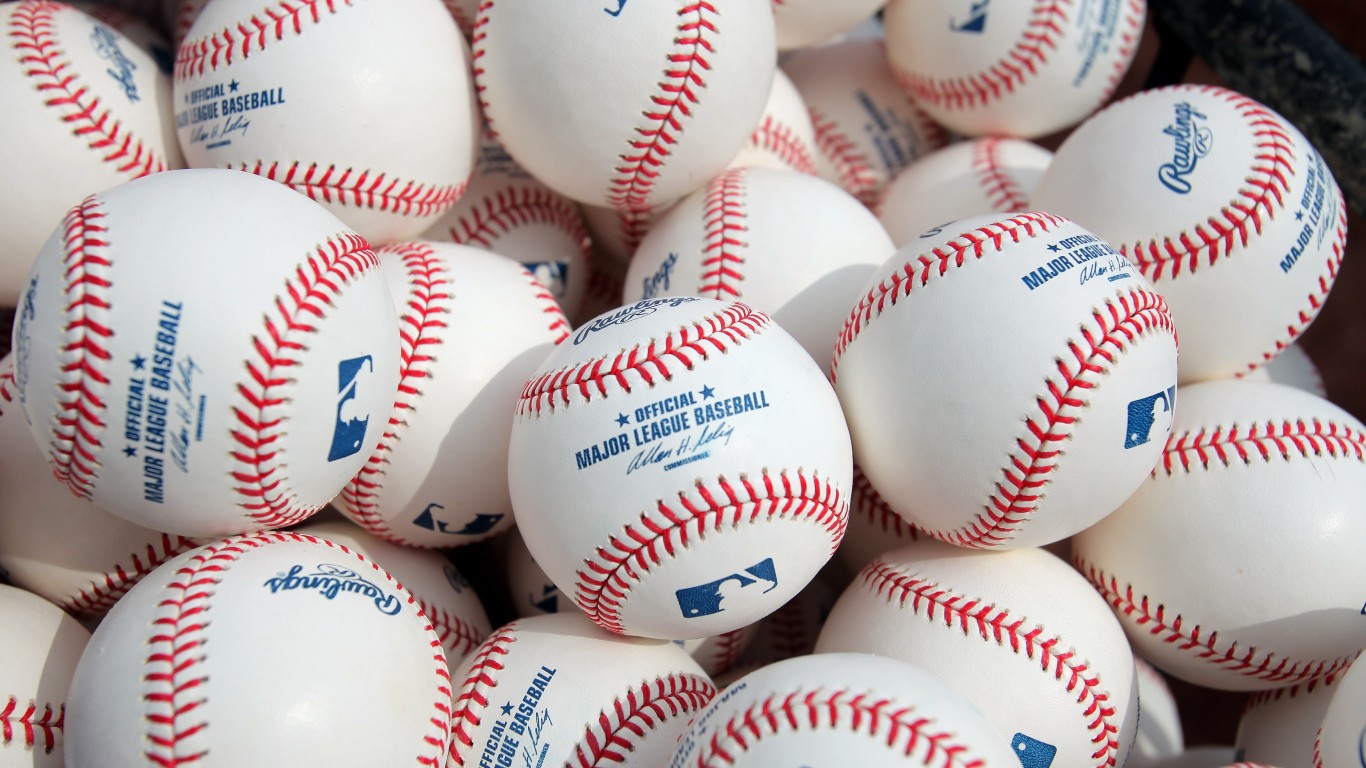Investing
Dick’s Sporting Goods Shares Plunge as Retailer Blames Increased Theft

Published:
Last Updated:

On Tuesday morning, the competitively priced North American retailer Dick’s Sporting Goods (DKS) cratered. With nearly 800 stores across the US, Canada, and Mexico, DKS shares dropped by 27%, from $149 to $108.
The DKS stock plunge came after the Q2 2023 earrings report. The largest US omni-channel sporting goods retailer reported $3.2 billion in net sales, a 3.6% uptick from the year prior. However, this wasn’t followed by an increase in profits, which dropped by 23%.
Dick’s Sporting Goods’ net sales year-to-date generated $6 billion, a 4.4% decrease from last year. Likewise, net income fell to 549 million, a 5% decrease. The company currently holds $1.9 billion in cash and cash equivalents while its total debt is $1.48 billion, a large 20% decrease from the previous year.
Considering that earnings per share (EPS) plays a large role in stock valuation, a precipitous stock drop was to be expected. Dick’s Sporting Goods even decreased its share repurchases this quarter by 28%, spending only $260 million to bolster its market positioning.
Will the culprit for the incongruity between net sales and net income push other retailers into the same devaluation basket?
Typically, when a company reports an increase in net sales but a decrease in profits, it signals poor management. One that leads to an increase in expenses that offsets sales. However, what happens if that expense increase is out of the company’s control?
This appears to be happening with Dick’s Sporting Goods, as a precursor for the broader retail market. The company’s CEO , Lauren Hobart noted as much in her statement.
“Our [Q2] profitability was short of our expectations due in large part to the impact of elevated inventory shrink, an increasingly serious issue impacting many retailers,”
Typically, inventory reduction boosts the company’s bottom line, frees up cash flow, and reduces costs. But not in this case. The “elevated inventory shrink” is a reference to retail theft.
The US is the only first-world nation that is experiencing the phenomenon of mob looting, or “smash-and-grab” theft. The trend ramped up following California’s Proposition 47 in 2014. The law decriminalized shoplifting up to $950 in goods, making shoplifters eligible for a misdemeanor offense instead of a felony and jail time.
Like California, New York also treats shoplifting as a misdemeanor if the value of goods is less than $1,000. Seeing the retail theft ramp up, Governor Gavin Newsom signed a new law in 2022. The bill gave prosecutors greater flexibility in charging crimes, depending on the circumstance.
For instance, if the theft comes from an organized retail “grab-and-smash” ring, felony charges would be applied regardless of the stolen goods’ value. New York made similar adjustments if a retailer is repeatedly targeted.
Facts on the ground supported these legal tweaks. According to the New York Police Department (NYPD), just 300 individuals were responsible for 30% of grand larceny, with 70% of them free to re-offend.
Another compounding factor is the penalty for store employees. There have been multiple viral instances of employees getting fired for disrupting thieving activities in any manner. For two Lululemon employees, it only took recording of the criminals and reporting them to the police to lose their jobs.
As the legal consequences and social expectations loosened, the retail expenses as “merchandise shrink” followed. The National Retail Federation (NRF) noted an annual shrink uptick in 2021 at $94.5 billion, compared to $90.8 billion in 2020.
Despite recessionary fears and higher interest rates, retail spending has increased by 0.7%, month-over-month in July. Yet, other retail chains have reported losses in net sales. Lowe’s (LOW) reported a net earnings contraction at $2.67B compared to Q2 2022 at $2.9B.
In the meantime, Walmart, as the largest US employer, keeps closing stores in big cities, with four in the Chicago area alone, out of 23 locations across thirteen states. If recessionary tailwinds unfold, we will likely see compounded retail losses in the present social environment.
This article originally appeared on The Tokenist
If you’re one of the over 4 Million Americans set to retire this year, you may want to pay attention.
Finding a financial advisor who puts your interest first can be the difference between a rich retirement and barely getting by, and today it’s easier than ever. SmartAsset’s free tool matches you with up to three fiduciary financial advisors that serve your area in minutes. Each advisor has been carefully vetted, and must act in your best interests. Start your search now.
Don’t waste another minute; get started right here and help your retirement dreams become a retirement reality.
Thank you for reading! Have some feedback for us?
Contact the 24/7 Wall St. editorial team.